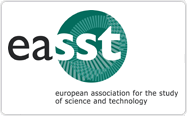Magicians at Work: Modellers as Institutional Entrepreneurs in the Global Governance of Agriculture and Food Security
DOI:
https://doi.org/10.23987/sts.65187Abstract
Global models of agriculture act as the epistemic basis for quantitative foresight, which guides international policymaking and research on agriculture. With the new political sociology of science as a backdrop, this article studies the actors who develop and use these models through the lens of field theory. Contributing to the dialogue between the neo-institutionalist field theory and its Bourdieusian version, it describes the structure and the dynamics of the strategic action field of modelling organizations, using the Bourdieusian notions of “succession” and “subversion” to refine the characterization of challengers. It also discusses the insights of the Bourdieusian concept of “homology” to analyse the relations between the field of model producers and the field of model users. Whereas Bourdieu provides a primarily descriptive account of homologies, which are close to a “social magic without magicians” for Roueff, the present text describes magicians doing the work of producing homologies. Some modellers use intercomparison to reduce competition and to have their models used in the field of global governance, thus strategically producing homologies, while resolving the main modelling conflict of the field. These actors benefit from the recent change in the modelling field under the influence of climate change, to behave as what Fligstein and McAdam have called “institutional entrepreneurs”. The article concludes that this amended version of field theory makes it possible to describe the co-construction of a range of models developed by competing organizations and the controversial making of global agricultural governance. Doing so, it complements the co-production framework, which often focuses on a given site of expertise production and a site of global governance.





